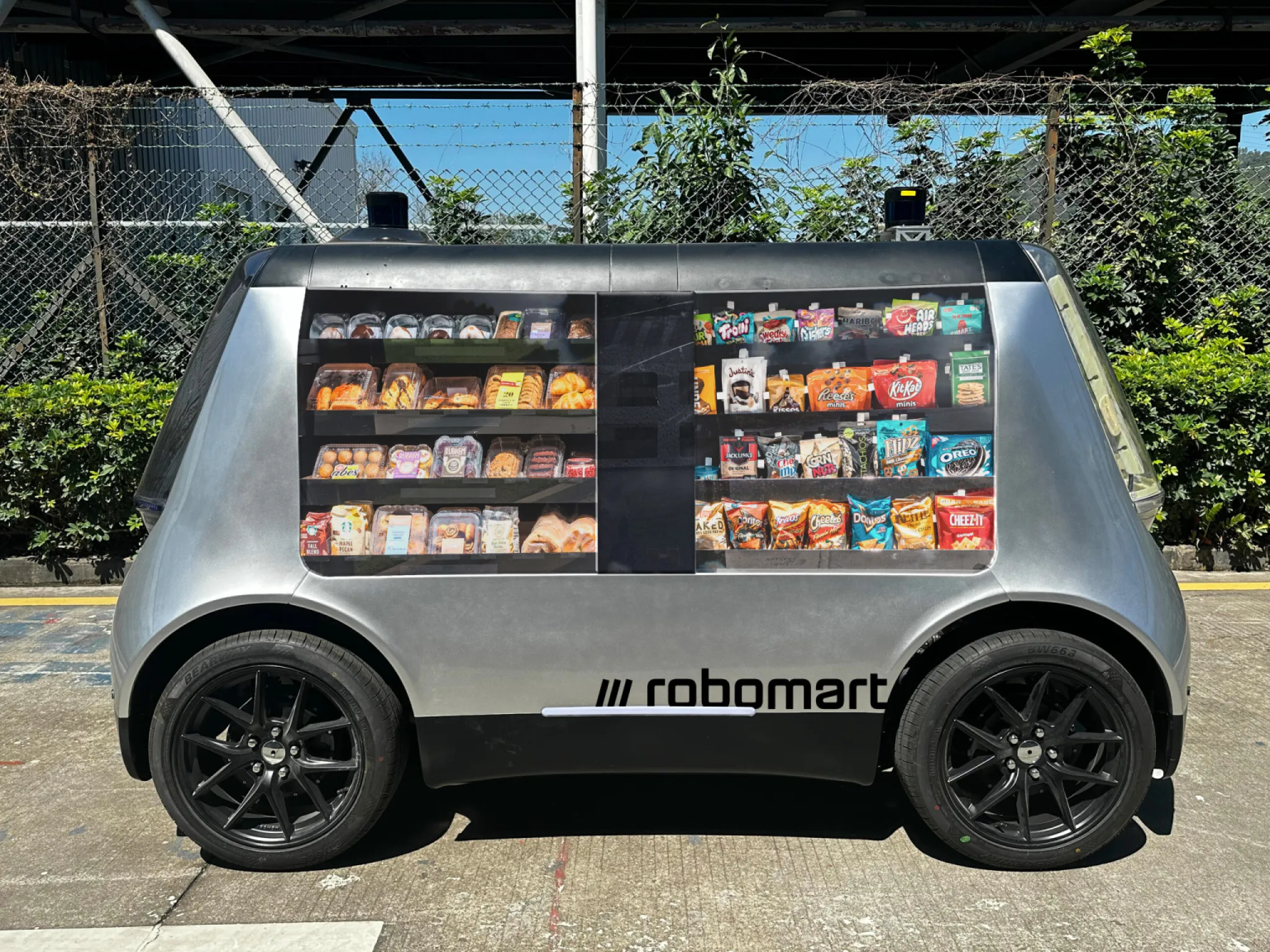Following a thorough beta testing phase in Southern California, Robomart has announced ambitious expansion plans for its store-hailing service utilising fully autonomous vehicles.
The start-up, based in Los Angeles, intends to introduce fully autonomous vehicles by the end of 2025, expanding its fleet by adding 102 mobile stores in the forthcoming months. These vans, offering ice cream and snacks typical of convenience stores, are set to commence operations in late summer, with the rollout extending over 12 months, as shared by Ali Ahmed, CEO and co-founder of Robomart, with Food on Demand.
Robomart positions itself as a direct-to-consumer platform, presenting an appealing alternative for retailers aiming to avoid third-party delivery services. Ahmed highlights the store-hailing service as a cost-efficient strategy for merchants to broaden their market reach without the necessity for traditional physical retail spaces.
Store hailing is described by Ahmed as “fundamentally a better proposition” due to the absence of “order basket creation. No pick and pack. No pickup orders.”
In an effort to enhance its fleet of mobile stores, Robomart has recently formed the Autonomous Retail Collective. This collaborative initiative brings together industry partners committed to pioneering autonomous retail solutions, including Whale Dynamic, known for their expertise in autonomous driving software.
Key partners in this initiative include RFID technology provider Avery Dennison, fleet management firm Zeeba, and autonomous vehicle producer PIX Moving.
“The Autonomous Retail Collective represents a significant leap forward in the evolution of retail,” stated Ahmed. “By uniting leading technologies from the autonomous vehicle and retail sectors, we are crafting a unique platform to revolutionise consumer shopping experiences and interactions with their favoured retailers and brands.”
As part of its expansion, Robomart plans to integrate Whale Dynamic’s advanced autonomous driving technology into its mobile retail vehicles, predominantly in the Los Angeles region, with two additionally based in Boston.
Tigran Shahverdyan, Robomart’s co-founder, mentioned that the collaboration with Whale Dynamic “strengthens our mission to enable the near-teleportation of goods.”
David Chang, the founder and CEO of Whale Dynamic, expressed: “Robomart’s innovative approach to retail perfectly aligns with our objective to revolutionise transportation through autonomous technology. We are thrilled to collaborate with Robomart and other ARC members to bring fully autonomous, self-driving shops to fruition and redefine the future of retail.”
The expansion plan of Robomart has been years in development.
Established in 2018, the company initiated its mobile store concept during the pandemic. Currently, Robomart collaborates with brands like Unilever, Mars, Ben & Jerry’s, and Rainbow Foods. The first-generation vehicles, which are presently operated by drivers, also offer prepared food items.
Customers commence the order process via an app, which allows them to “hail” a store.
Similar to ride-sharing experiences provided by Uber or Lyft, a van arrives at the customer’s location within 5 to 6 minutes. Upon the van’s arrival, customers unlock it using the app, select their products, and leave without going through a conventional checkout process.
RFID technology is employed to tally purchases without the need for human interaction.
“Whatever you pick up off the shelf, it tracks,” Ahmed explained. “So if you grab four items, and then you close the door, as soon as the door closes, it calculates the difference in inventory and that’s your basket.”
The convenience of the service is highly valued by consumers, according to Ahmed.
During a 25-week trial, one Robomart van experienced a 90% rate of repeat customers.
“Once someone hails a store, they become hooked on it,” he stated. “It’s simply the most economical, rapid, and convenient method to acquire goods.”
Currently, Robomart vans stock pantry essentials along with refrigerated and frozen products. Ahmed hinted at future plans to introduce vans with heating capabilities, evolving from mobile stores to mobile restaurants.
“It’s definitely part of our future plans,” affirmed Ahmed.
